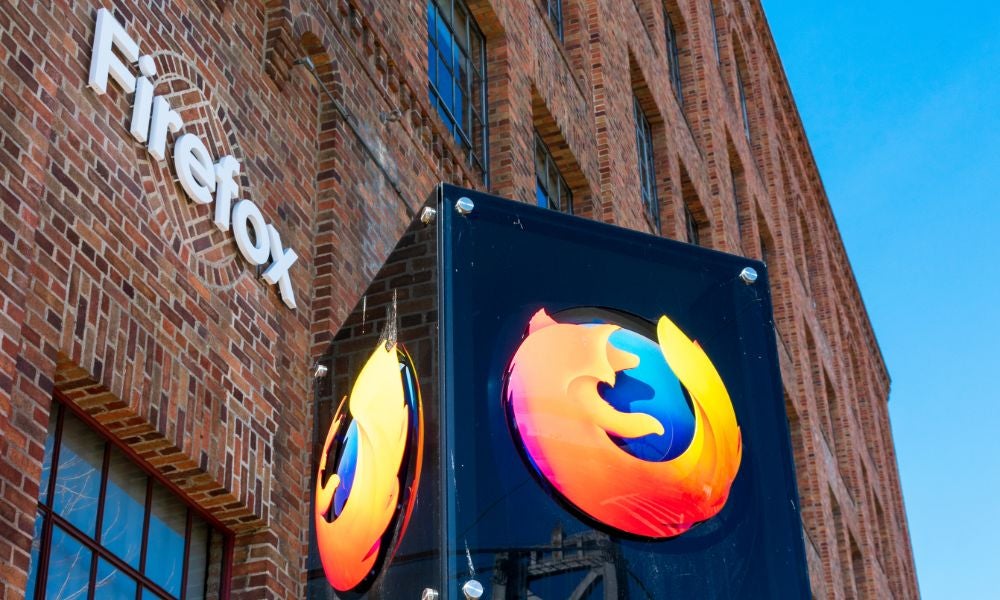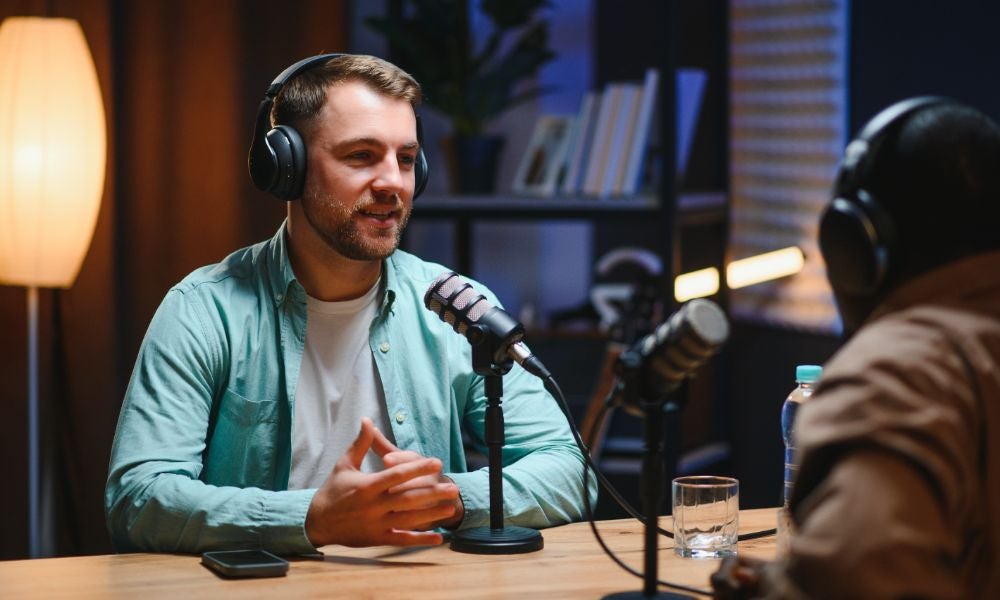How businesses can leverage podcasting for brand-building
Download The Business Of podcast on your favourite podcast platform.
Branded podcasts offer businesses a unique way to reach engaged audiences, build credibility, and deliver consistent, strategic value
In today’s crowded media landscape, businesses are turning to podcasting as a powerful tool to build deeper audience connections. And the numbers show why. Globally, podcasting is a US$36 billion industry projected to reach $47.8 billion in 2025 – growing at more than 30% annually. With over 500 million global podcast listeners in 2023 and expectations to hit 650 million by 2027, podcasting is no longer niche – it’s mainstream.
Companies from diverse sectors – Atlassian, Gatorade, McDonald's, Beyond Blue, Commonwealth Bank, and even cosmetics giant Sephora – to name just a few, discovered that podcasting offers advantages not found in other marketing formats. The medium's evolution from a technical niche to a mainstream platform represents a significant shift in how brands communicate with audiences.
The power of podcasting lies in its extraordinary engagement levels. While traditional advertising struggles to capture attention, podcasts command focused listening – up to 92% of all podcasts are listened to on headphones, according to James Cridland, editor of Podnews, a global podcasting news website with almost 3 million article views monthly and more than 1 million podcast downloads over the same period. This creates a unique space where listeners develop habits and relationships with content, providing businesses with access to attentive audiences.
Podcasting creates a unique space where listeners develop habits and relationships with content. "You listen to the same podcast every single week. You get used to hearing those voices in your life," said Mr Cridland, who was recently interviewed by Dr Juliet Bourke, Adjunct Professor in the School of Management and Governance at UNSW Business School for The Business Of, a podcast from UNSW Business School. He observed that a podcast is “something that you are leaning in to listen to. You are taking note of everything that is being said."

The evolution of podcasting as a marketing channel
Podcasting began in the early 2000s as a technical endeavour with limited reach. The technology constraints created a substantial barrier between content creators and potential audiences. "You had to have a separate MP3 player and some complicated software on your laptop and an internet connection. So it was a very, very niche thing," said Mr Cridland. Initially, this limited adoption to technically savvy enthusiasts who could navigate the complex requirements for both production and consumption.
The landscape transformed when major players entered the space. Apple created a directory of available podcasts, while broadcasters like the ABC, BBC, and NPR began mentioning podcasts on air. "Apple jumped into the podcast world. They got a directory of all of the podcasts that were out there at the time. So that was a tremendous step forward,” said Mr Cridland, who observed this institutional support provided both discoverability and legitimacy to the emerging medium.
The transition from traditional radio to podcasting created both tension and opportunity. "There was a lot of antagonism at the beginning, but there again, there were a lot of people who had been, for whatever reason, frozen out of the broadcast world and wanted a space to get their voice heard. And so podcasting was, and remains, a great place for them to end up doing that," Mr Cridland observed. This democratisation of audio content production opened doors for businesses of all sizes to create professional-sounding content without the gatekeeping functions of traditional broadcasting.
Why podcasts create unique value for businesses
Podcasts deliver value through a focused listening experience that differs fundamentally from radio. About 91-92 per cent of all podcasts are listened to on headphones, Mr Cridland said: "It's an accompaniment to your life, whereas a podcast is something that you are leaning in to listen to. You are taking note of everything which is being said, so it's a very different experience."
Read more: The power of narrative: How storytelling drives business success
The demographic reach of podcasting also complements traditional media. While radio predominantly attracts listeners over 45, podcasting shows the reverse pattern, with younger audiences consuming more podcast content. This makes podcasting an effective channel for businesses seeking to reach younger demographics.
The niche nature of podcasting allows for targeted content that serves specific interests. "You can be as niche as you like with a podcast," Mr Cridland said. This specialisation enables businesses to create content for specific segments of their audience, serving interests that broader media cannot accommodate.
How brands generate value through podcasting
Businesses approached podcasting through several models. Many created branded podcasts that deliver value while subtly promoting their products. Mr Cridland cited Mozilla's podcast about online safety as an example: "The fact that it came to you by Mozilla, and the fact that, clearly, every so often they would mention the Firefox browser, doesn't necessarily take away from the fact that it was a very interesting show all about keeping safe online."
This approach focuses on providing genuine value rather than explicit promotion. Companies from diverse sectors, including technology, finance, food service, and cosmetics, have launched podcasts that align with their brand values while addressing topics relevant to their audience.

Other businesses leveraged podcasting as a platform for thought leadership. Mr Cridland described a valid motivation for podcast creation: "I want to be seen as the person that understands this particular field," said Mr Cridland, who gave the example of an air conditioning specialist who built a successful podcast by targeting installers who listened while driving between jobs, eventually generating a substantial income.
Business models and revenue generation
While earning money represents a common goal, Mr Cridland warned against making it the primary motivation. "To earn some money is not a good enough reason, so go away and have a better reason," he advised. Instead, he suggested that financial success follows from creating content that helps listeners, educates them, or changes their perspective on important topics.
Several monetisation strategies emerged for podcasters. The most common approach involves advertising, which takes two forms: interruption-based ads similar to radio, or host-read endorsements where the presenter personally recommends products or services. The latter creates a distinctive listener experience that resonates with audiences.
Subscribe to BusinessThink for the latest research, analysis and insights from UNSW Business School
Other revenue streams include subscription models for premium content, live events and performances, and voluntary donations from listeners who value the content. Despite these options, Mr Cridland noted that approximately 90 per cent of podcasts contain no advertising, representing passion projects rather than commercial ventures.
Standing out in a crowded marketplace
The podcast landscape includes millions of shows, creating challenges for new entrants. However, Mr Cridland pointed out that the number of regularly updated podcasts sits much lower at around 300,000, making the competition less daunting than it appears.
For businesses seeking to differentiate their podcasts, Mr Cridland recommended focusing on fundamentals rather than technological complexity. "Forget everybody that is talking about video podcasts, and 'You've got to be recording this in video, and you've got to get a beautiful-looking studio and everything else.' You can absolutely forget that," he advised. Instead, he suggested starting with audio and establishing consistency before adding visual components.
Marketing plays a crucial role in podcast success. Mr Cridland recommended engaging authentically with relevant communities rather than merely promoting content. "You can go in there, and you can be helpful," he suggested, using expertise demonstrated in podcast episodes to add value to online discussions.
Clear branding decisions also influence discoverability. Mr Cridland advised prioritising clarity over creativity: "Make sure you have an obvious podcast name, so that people find it when they search.”

Key insights for business
For companies considering podcasting as part of their marketing strategy, several practical implications emerge. First, podcast creation requires a long-term commitment. "Most podcasts fail after five individual episodes," Mr Cridland observed. "It typically takes a podcast maybe 18 months to really find its feet."
Second, businesses must identify a clear purpose for their podcast beyond financial returns. Whether building thought leadership, providing educational content, or engaging with a community of interest, the podcast should serve a defined strategic goal.
Third, simplicity and consistency trump production values in the early stages. Starting with basic audio allows businesses to develop their approach without the complications of video production.
Finally, podcast marketing requires integration with broader communication strategies. By connecting podcast content with other channels and engaging authentically with relevant communities, businesses can build their audience over time.
